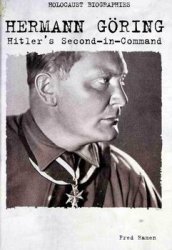Political discontent at home remained, with one notable exception,
within peaceful limits. In Austria—but not in Hungary—the parliament was
not allowed to meet until early 1917. In a dramatic act of protest, Friedrich
Adler, the son of a leading Socialist politician, assassinated Count Carl
Sturgkh, Austria's prime minister, in October 1916. Nonetheless, the intense
political ferment visible in Russia in 1 9 1 7 was not to be seen. When Vienna's
workers, pushed by a cut in the bread ration, went on strike in January 1918,
government leaders met with them, worked out a compromise, and ended
the crisis peaceably.
The empire's collapse came suddenly: in the face of military invasion, in
the face of a dramatic shift in the policies of the empire's adversaries, and
as a result of a relatively recent surge in the militancy of the non-German
and non-Hungarian nationalities. Meanwhile, conditions for the civilian
population grew impossibly difficult.
The population of the empire had long borne the hardships of hunger and
inflation. The German ambassador reported starvation in Vienna in 1916,
and in 1917 the harvest was poor, cutting yields by as much as one-half in
some regions. 20 By the fall of 1918, the situation for the civilian population
almost everywhere was desperate. C. A. Macartney sums up the situation
thus: "In the big towns and industrial centres, queues waited all day for the
miserable pittances to which their ration cards entitled them, and even those
were often not available."'
When the Austrian parliament was recalled in May 1917, delegates
representing the national minorities began to call for reforming the system
to create a federation. The following year Czech leaders went further,
adopting on January 6, 1918, a resolution calling for an "independent
Czecho-Slovak nation." After Caporetto, the desperate Italian government
sought to ease friction with its nominal Serb ally and unofficially accepted
the creation of a Yugoslav state as a war aim. That goal would mean tearing
away the south Slav lands of the empire. With the final German offensive
of the war threatening to defeat the Allies, and the Dual Empire clearly a
German satellite, the attitude in Washington, London, and Paris toward
Austria-Hungary changed. The government in Washington took the lead,
expressing its sympathy for the "nationalistic aspirations of the Czecho-Slovaks
and Jugoslavs for freedom" on May 29, 1918.22 In early June 1918, at
Versailles, the prime ministers of Britain, France, and Italy also expressed
their sympathy for these goals. Next, Britain took the lead. On August 9 it
recognized "the Czecho-Slovaks as an Allied nation" and "the Czech-Slovak
National Council as the supreme organ of Czecho-Slovak national
interests." 23 Qn September 3, the United States followed as the Wilson
administration officially recognized the National Council as a legitimate
government.
Coupled with political changes abroad were shifts in the empire's military
fortunes. The advance of General Louis Franchet d'Esperey's Allied
army northward after its breakout from Salonika cut into the heart of
Austria-Hungary. And in late October, the final Allied offensive in Italy at
last shattered the tough skeleton of the military system.
In rapid-fire fashion, representatives of the national minorities now took
charge in one area after another. On October 6, for example, a council of
Serbs, Croats, and Slovenes had convened in Zagreb calling for a single
independent nation. In his imperial manifesto of October 16, Emperor
Charles, trying to stem the tide, announced that the nationalities of the
Austrian portion of the empire were free to form their own states within a
federal system. On October 28, nationalist leaders in Prague did precisely
that and proclaimed the formation of a Czecho-Slovak republic. As the war
ended, the Habsburg state ended as well.




 World History
World History









